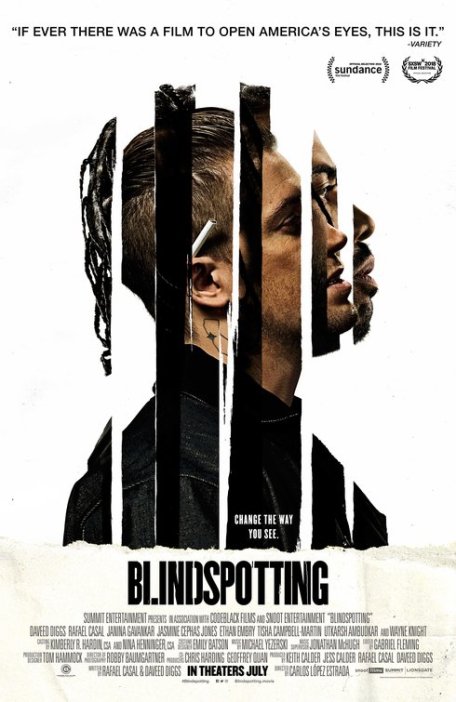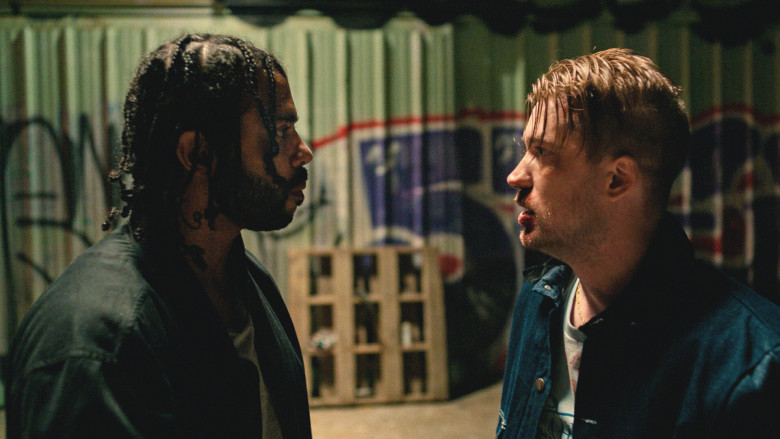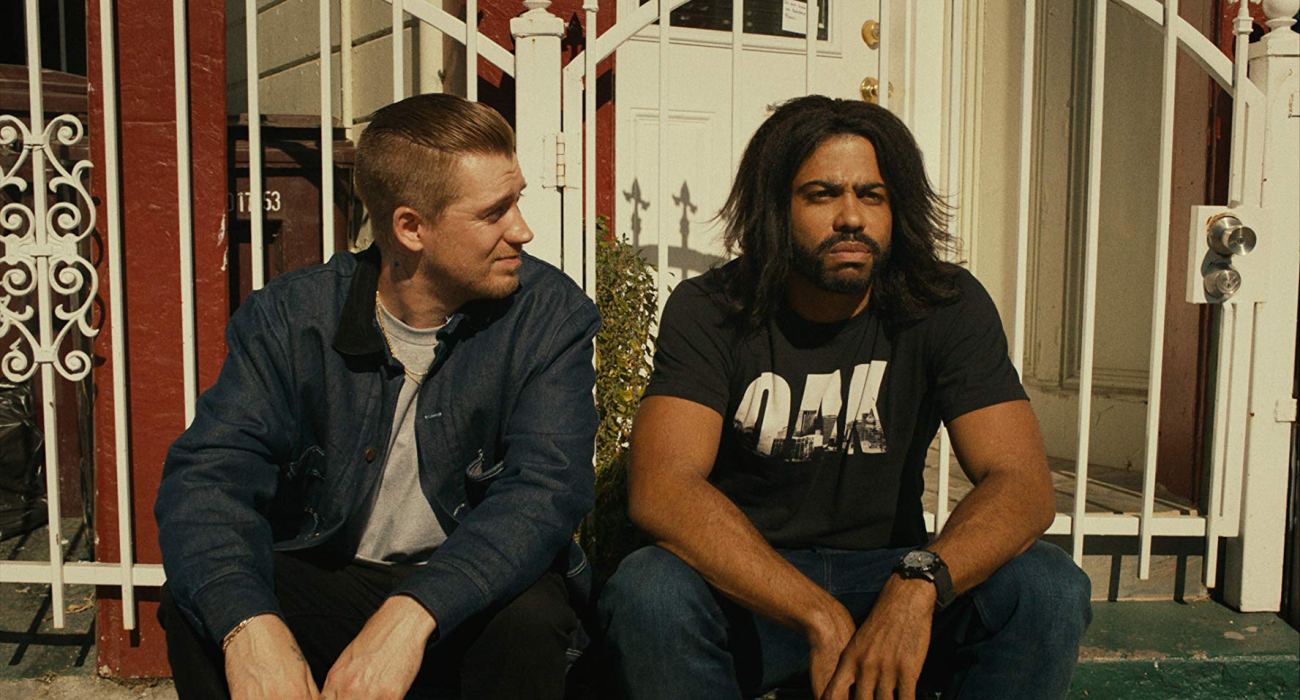
A couple of weeks ago I discussed a wonderful new film called Sorry to Bother You. In that article I discussed how impressively terrible the world is at the moment, and how art is starting to reflect the frustrations and anger involved in all of those issues. I certainly wish that the world was in a better place at the moment, taking away some of the relevancy of these stories, but it’s been interesting nonetheless to see these stories start to take form. People are getting to tell their own stories, often deeply personal, and it’s been wonderful that they’ve been given the chance to express themselves. And, oddly enough, we’re getting another film set in Oakland that’s tackling some incredibly important and heavy topics. But, no horse people in this one. Instead, we get to look at the monstrousness of humanity, more directly. And it’s truly one of the most special films I’ve seen all year. Honestly, I was initially interested in this film for the dumbest reason. I saw that it starred Daveed Diggs, and I love his songs in Hamilton. That was really the main thing that first connected me to this film, but as it approached release and I started to hear nothing but good things about it, along with the knowledge that stars Daveed Diggs and Rafael Casal wrote the film after being best friends for decades, really made me excited for this film. And I absolutely loved it. This film is going to certainly end up very high on my list of favorite films of this year, because it’s been several days since I saw it, and I’ve thought about it constantly.
Blindspotting is the story of a man named Collin who has served his time after being convicted of a felony, and has now spent almost an entire year on probation. He has three days left, after which he’ll be free. Or, as free as a “convicted felon” can be in this country. He has been living in a halfway house, working with his best friend Miles at a moving company, and has been generally trying to keep his nose clean. And, things start to get complicated. Because one night, after Miles happens to buy an unlicensed gun, Collin sees a police officer shoot and kill an unarmed black man. These two events start to wreck some serious havoc on Collin’s life in his final few days of probation. He becomes increasingly worried that Miles is going to do something stupid that will jeopardize his future, especially since we learn that Miles was instrumental in the assault that ended up sending Collin to prison. And the nightmares and PTSD that come along with watching a police officer murder a man is running him ragged, making him incredibly paranoid that everything he’s worked so hard to fix is going to come crashing down around him.
But, the days keep going along, showing us Collin as he’s trying his best to keep things afloat. We get to see him and Miles continue to work, moving rich transplants into their beloved Oakland, slowly gentrifying it and killing everything that made it what it was. Collin is doing everything he can to normalize his life, even rekindle a relationship he had with his coworker Val, and it seems like things may end up being okay. Until his last night of probation comes around. Because, while over at Miles’ house, his gun ends up being found by Mile’s young son, causing a massive fight between Miles and his wife, which ends in him getting kicked out. Miles then insists that the two go to a party that’s being attended by a friend of theirs, that’s being hosted by a tech bro from Silicon Valley. Collin and Miles go to the party, finding it full of the very hipsters who are gentrifying their neighborhood, and after one of the few black guys at the party assumes that Miles is a fellow hipster attempted to co-opt his culture, things get ugly. Collin has a breakdown, and starts waving his gun around, causing Collin to finally snap and rant at Miles. He explains that all he ever does is try to better himself, and keep himself from becoming the type of person that white people are so scared of, while Miles is everything they’re actually scared of, but just get to be white. It’s a rough night, but the next morning, Collin’s first day of freedom, they try to move past things and just go back to normal. Which is when they go to move out a woman and her child, who are leaving her husband. And, as luck would have it, the husband is the cop that Collins saw murder the man earlier. This causes Collin to absolutely loose control, yelling at the man and expressing himself through rap, before leaving with Miles, hoping that their lives can go back to normal now that everything has been aired out.

This film left me reeling after it ended. I’m really in awe by it, and the fact that it’s the first film that Daveed Diggs and Rafael Casal have written is simultaneously the most impressive thing about it, and the most frustrating. Because making a film that tackles gentrification, race relations, police violence, and second chances should be a difficult thing to tackle. Those are a lot of very complicated plates to keep spinning. And yet, this film managed to accomplish all of that while keeping an amazing sense of flair. It really makes sense to learn that Daveed and Rafael are best friends, and have been for years, because there’s a spectacular amount of chemistry between them, and their banter is able to inject some levity in what should be an incredibly dark movie. And yet, that levity doesn’t tarnish the emotional weight of the film. If anything, it enhances it, because it adds a sense of realism to the whole affair. Because even in times like these, when the world is completely falling apart, we still find reasons to laugh and enjoy ourselves. This could have been an incredibly dour film, one that shows Collin’s struggles in a gritty and depressing manner. But, instead, they managed to make everyone act like real people, not characters in a drama. Things gets intense, don’t get me wrong, but there’s a wonderful realism to the intensity that worked wonders for me. There are moments where my crowd laughed out loud, and moments where I could hear a collective release of held breathe. It’s a beautiful film, and one that tackles a lot of important issues, while focusing on one important universal problem.
And that problem revolves around identity. None of us know who we really are. Our lives are just a constant struggle to figure out who we are, what we like, and what we wants to be. And yet, no matter how hard we may work to become our idealized selves, to better ourselves, you have to deal with people’s preconceived notions. A major thrust of this film is the problem that Collin has with his new standing in the world. He’s now a “convicted felon.” That label will never leave him, it’ll be one of the main things people will know about him, and no matter how ethically he leads the rest of his life it’ll still be lingering there. His ex-girlfriend Val now can’t look at him without thinking about the incident that sent him to prison. Despite what a good man he is, his identity is now forever linked with one terrible mistake. And, it’s not just Collin’s identity. Miles’ whole story revolves around him struggling with a changing world, one where people assume he’s an invader rather than a native. People assume they know who he is, and what he represents, just by looking at him, and instead of trying to better himself and at least bring happiness to his life like Collin is trying, he lashes out. Finding out who we are, and who what we represent is one of the most important things that a person can do, and the way that this film uses that universal truth to tackle some of the most important and defining questions of the era is truly something to marvel at.
Blindspotting was written by Rafael Casal and Daveed Digs, directed by Carlos Lopez Estrada, and released by Lionsgate, 2018.

Categories: Reel Talk
What I liked about Blindspotting is that it had actual nuance to it. I think a problem with satirical works in the 2010s (or for that matter, sci-fi) is that they don’t really exist as stories, which is fine if you can get behind the message, but if you can’t, there’s barely a story to parse. Blindspotting doesn’t have that problem; it’s upfront about what it wants to say, but it’s never gratuitous about it. I think that gives it a better chance to stand the test of time than many of its contemporaries.
LikeLiked by 1 person
I totally agree. This movie has some real opinions, but it also is a functional narrative, and it doesn’t sacrifice the story to push its ideas. It does both in harmony.
LikeLiked by 1 person